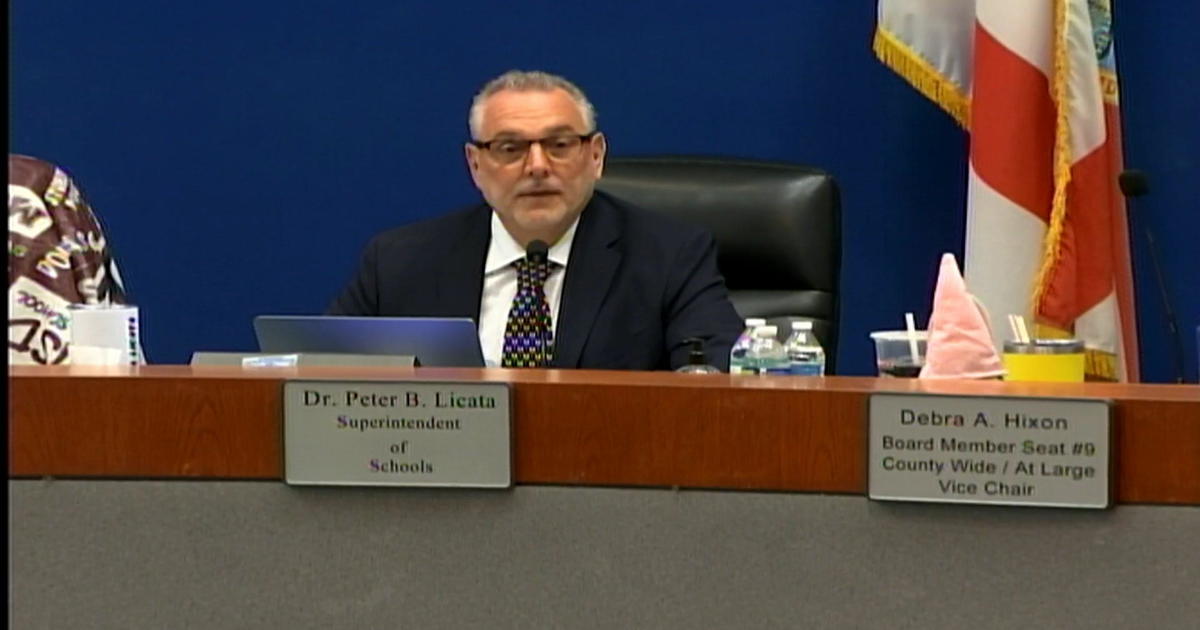How Well Does Your Doctor Know Specialists?
MIAMI (CBSMiami) – The likelihood of primary care doctors who referred patients to specialist has increased, but how a physician may hear about specialists may come as a surprise to some patients.
It's not from medical journals, rubbing elbows on the golf course or even bumping into other doctors in the hospital but from paid representatives called "client liaisons". Some people feel that this growing field could potentially be dangerous for patients.
Meeting with a primary care doctor may be the reason for a referral to the next specialist you see.
Sabrina Alexander spent most days visiting different physician's offices, armed with brochures and head shots touting the qualifications of the doctors in the orthopedic group where she works.
"The things that I can do really help my specialists shine to other primary care physicians and help them stand out against our competition," said Alexander.
She's part of a growing industry of client liaisons.
Front line "go-betweens," like Alexander, and even marketing firms are hired by specialty physicians to hit the road to let primary care doctors know their expertise is available.
"Oftentimes that is the only way that we learn about a new doctor in town," said Alexander.
That's because health care has changed dramatically over the last decade. This study found the number of patients referred to specialists nearly doubled. Busy primary care doctors, like Matthew Cepeda, don't spend as much time in the hospital meeting other specialists.
Instead, they're booked solid in their offices with patients, charts and follow up care.
Dr. Cepeda is happy to meet with specialists' representatives.
"Whenever I need another resource they're the best way for me to find out what else can be done for your health care," said Dr. Cepeda.
Critics worry these office-to-office pitches could pose an ethical health hazard.
"I don't think patients have the vaguest idea of, uh- that their referral might have been the result of a marketing campaign," said Dr. Cepeda.
Bioethicist Lawrence Nelson hoped that primary care doctors base referrals only on specialists' qualifications.
"The best protection for patients is physicians who are following their ethical obligation to make referrals based upon the patient's need and personal preferences and not on slick marketing or any kind of other inducements," said Nelson.
The American Medical Association said there are strict ethical guidelines and laws regarding patient referrals similar to rules regulating pharmaceutical sales reps.
Physicians have to be knowledgeable about a specialist's experience and can't accept referral fees.
"My job is to refer my patients to whoever I think is going to provide the highest level of medical care in that situation," said Nelson.
She said her office visits are just one step in initiating long-term personal relationships between primary care doctors and specialists.
She also pointed out that if a patient is steered the wrong way, it could affect the doctors too.
"The primary care physician's reputation is also on the line, so they have to be comfortable with the specialists that they're referring their patient to," said Alexander.
Experts said that patients should always ask any specialist they're referred to basic questions like: " Have you seen problems like mine before?" "How many patients have you treated with this condition?" and, "What were the outcomes?"



